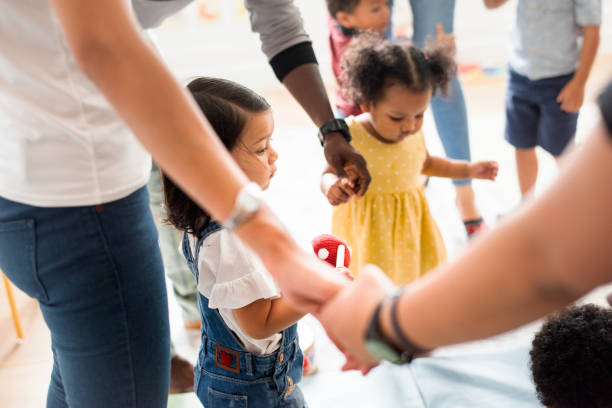
In the early years, much of a child’s development takes place not through formal instruction, but through interactions—particularly with peers. Friendship at nursery may look like two children giggling over a shared toy or holding hands on a walk, but behind these simple moments lie rich opportunities for learning.
Social interactions in a nursery setting help children develop empathy, communication, cooperation, and emotional intelligence—skills that form the foundation for lifelong relationships and success in school and beyond.
In a supportive environment like a nursery in Walton-on Thames, these social skills are nurtured every day through shared play and positive guidance. Children begin to understand what it means to share, to compromise, to handle disagreement, and to express their own needs while respecting others’. These lessons, learned through play and supported by caring educators, are some of the most valuable experiences a nursery can offer.
Why Friendships Matter in Early Childhood
Children are naturally social beings. Even in infancy, they show interest in faces and voices, and by the time they reach nursery age, they are eager to engage with others their own size. Friendships provide an early sense of belonging and identity, giving children the chance to explore who they are within the context of a group.
The benefits of nursery friendships include:
-
Improved communication skills
-
Increased emotional awareness
-
Greater cooperation
-
Stronger resilience
These skills are not automatic; they’re built gradually through daily interactions and positive reinforcement.
The Role of Nursery Staff in Social Development
Friendships in nursery are supported and guided by educators who understand how to nurture relationships. Teachers and carers model empathy, encourage inclusive behaviour, and help children resolve conflicts with kindness and respect.
Staff might use techniques such as:
-
Narrating and reinforcing pro-social behaviour
-
Providing language for emotions and social cues
-
Creating inclusive group activities
-
Coaching children through challenges with peers
These actions lay the groundwork for respectful and confident social engagement.
Creating a Community for Social Growth
The physical and emotional environment of a nursery also plays a critical role in shaping friendships. Shared spaces, inviting play areas, and consistent routines create a sense of safety and openness that allows children to connect.
At a well-regarded nursery Walton on Thames, the setting is designed to support collaborative learning. Whether it’s building with blocks together, role-playing in the kitchen corner, or solving puzzles side-by-side, children are constantly learning how to be part of a team.
Supporting Social Skills at Home
Families can help by reinforcing the same social skills at home:
-
Encourage turn-taking and sharing
-
Discuss emotions regularly
-
Arrange simple, low-pressure playdates
-
Praise cooperative and thoughtful behaviour
Children thrive when nursery and home work together to provide consistency in values and expectations.
Final Thoughts
The friendships formed in the nursery years are more than playmates—they are powerful tools for personal growth. Through these early bonds, children learn how to communicate, cooperate, and care for others. With the guidance of thoughtful educators and the support of their families, these lessons help children thrive far beyond their nursery years.